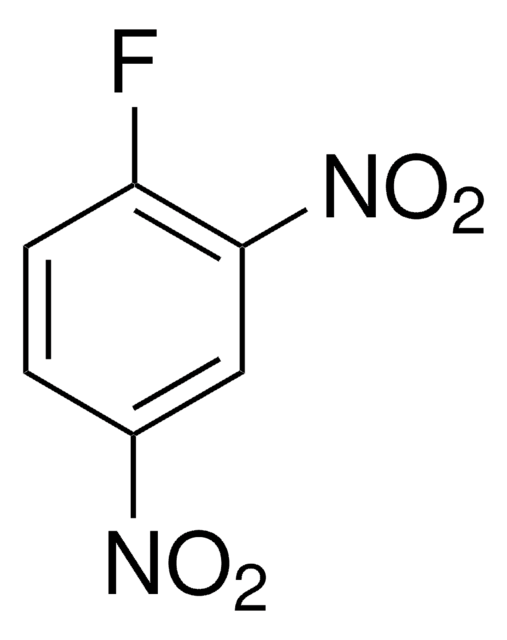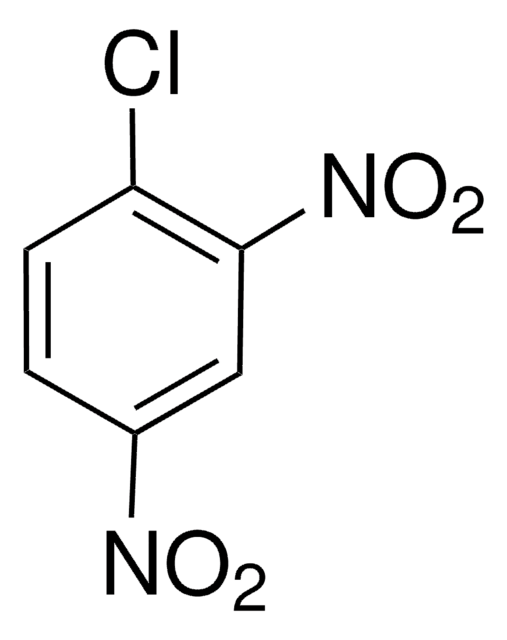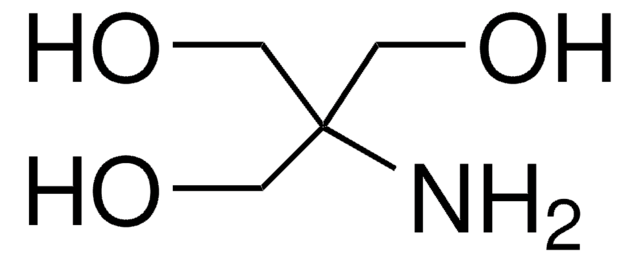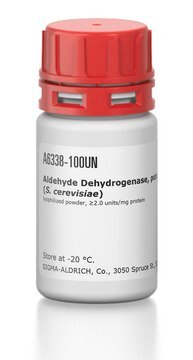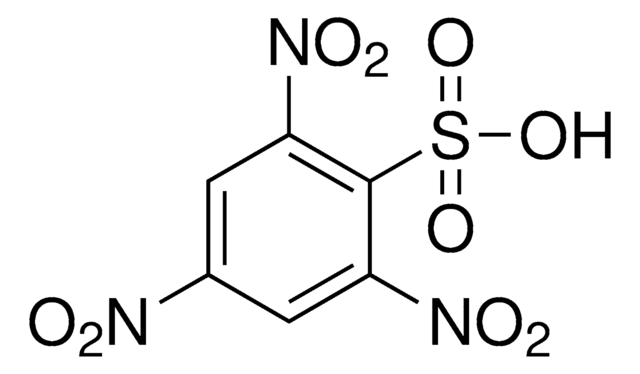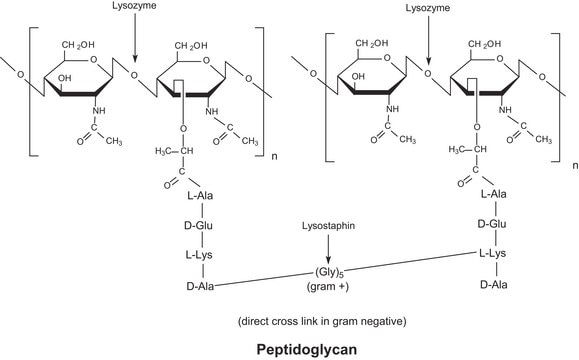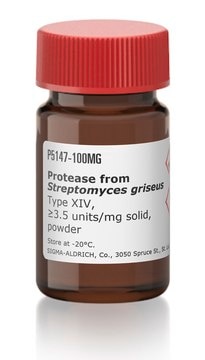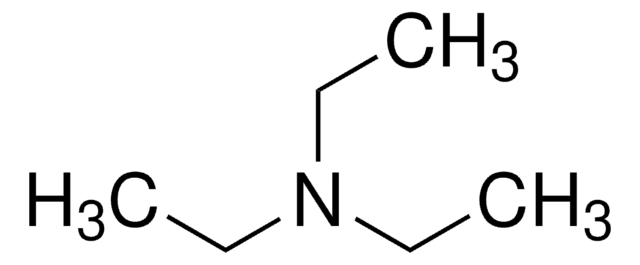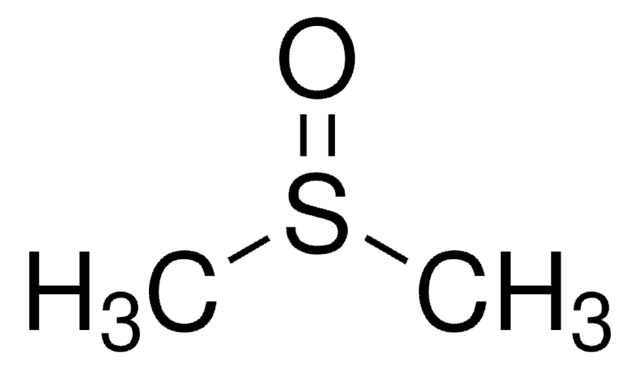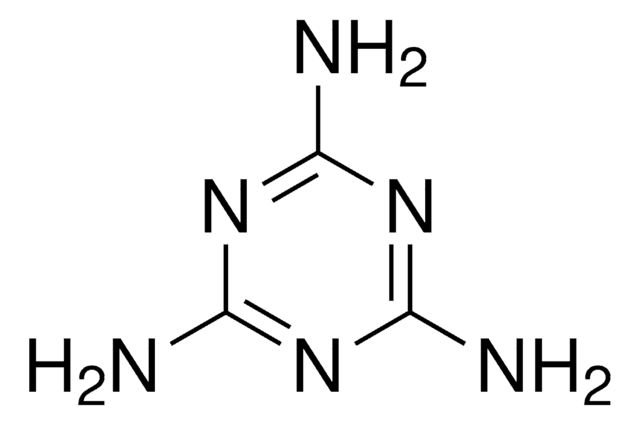73177
1-Fluoro-2,4-dinitrobenzene
for HPLC derivatization, LiChropur™, ≥99.0% (GC)
Synonym(s):
2,4-Dinitro-1-fluorobenzene, DNFB, DNPF, FDNB, Sanger reagent
About This Item
Recommended Products
grade
for HPLC derivatization
Quality Level
assay
≥99.0% (GC)
form
(Solid or Semi-Solid or Chunk(s) or Paste or Liquid)
quality
LiChropur™
technique(s)
HPLC: suitable
color
light yellow to very dark green-yellow, and Light Green to Very Dark Green
refractive index
n20/D 1.569 (lit.)
bp
178 °C/25 mmHg (lit.)
mp
25-27 °C (lit.)
density
1.482 g/mL at 25 °C (lit.)
SMILES string
[O-][N+](=O)c1ccc(F)c(c1)[N+]([O-])=O
InChI
1S/C6H3FN2O4/c7-5-2-1-4(8(10)11)3-6(5)9(12)13/h1-3H
InChI key
LOTKRQAVGJMPNV-UHFFFAOYSA-N
Looking for similar products? Visit Product Comparison Guide
Related Categories
General description
Application
Legal Information
signalword
Warning
Hazard Classifications
Acute Tox. 4 Oral - Eye Irrit. 2 - Skin Irrit. 2 - Skin Sens. 1 - STOT RE 2 - STOT SE 3
target_organs
Respiratory system
wgk_germany
WGK 3
flash_point_f
327.2 °F
flash_point_c
164 °C
Choose from one of the most recent versions:
Already Own This Product?
Find documentation for the products that you have recently purchased in the Document Library.
Customers Also Viewed
Our team of scientists has experience in all areas of research including Life Science, Material Science, Chemical Synthesis, Chromatography, Analytical and many others.
Contact Technical Service